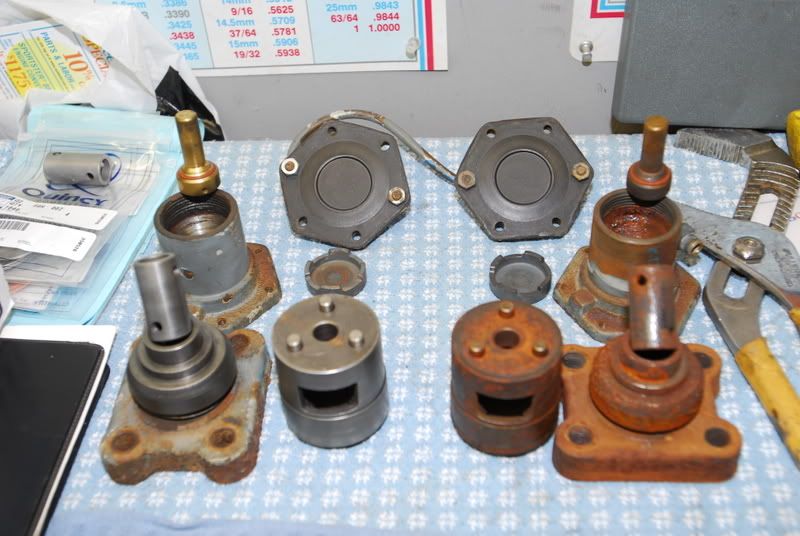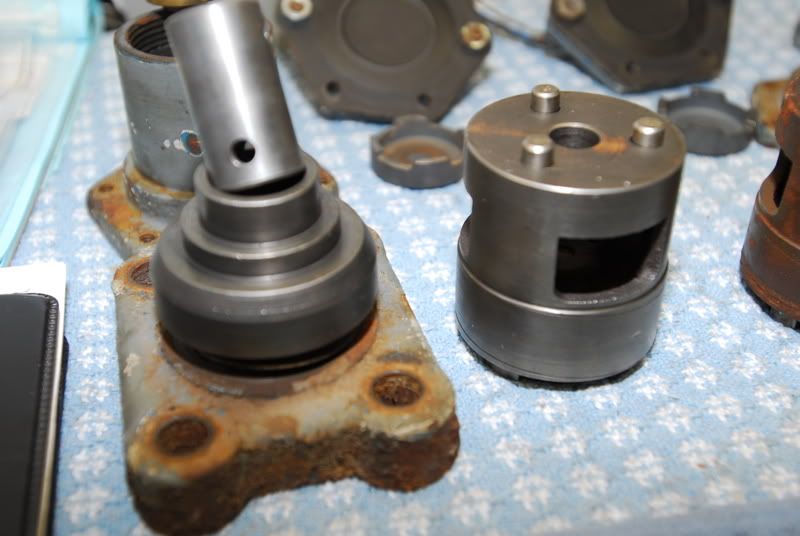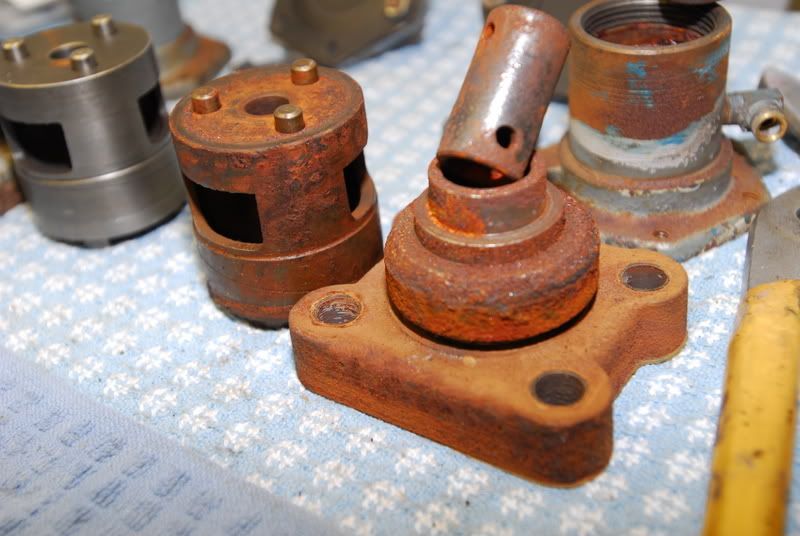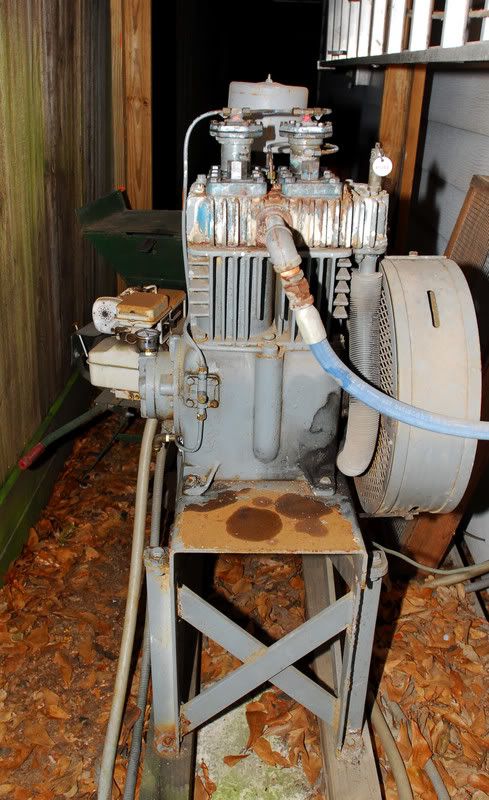piniongear
Stainless
- Joined
- Jun 26, 2006
- Location
- Canyon Lake Texas
I have a Quincy 325 compressor that is giving me some problems.
The compressor began to pop off the safety valve while it was building up pressure. I have had the problem before and it has always been stuck valves.
I pulled the valves and found the inlet side (?) to be pretty dirty and rusty.
The exhaust (?) side was very rusty, dirty and probably not working at all.
I cleaned everything up fully, lapped the flat washers and valve face(s), replaced the copper washers at the base of each. New gaskets, torqued down the valve caps to 50 ft lbs and the set screws to 60 ft lbs. I was certain that it was fixed, as I said, having had this problem before.
The compressor ran fine through about 3 cycles. All of a sudden it began to slow down a bit and start making a terrific mechanical noise at about 125 psi. Very similar to what it sounded like before the valve work, except the pop off valve stays shut.
I just let it run until it shut off at 180 psi.
Same thing happened on the next cycle, so I quickly turned it off and now I am looking for some help on what may be the problem. So, if anyone has some knowledge of the Quincy 325 I am all ears.
The machine was built in 1982. It is powered by a 5 hp Baldor 3ph 220V motor, using straight 3 ph, not a converter. The compressor is only run infrequently and that is the reason the valves get so rusty. Not enough run time to burn off the condensation. Thanks.....pg
The compressor began to pop off the safety valve while it was building up pressure. I have had the problem before and it has always been stuck valves.
I pulled the valves and found the inlet side (?) to be pretty dirty and rusty.
The exhaust (?) side was very rusty, dirty and probably not working at all.
I cleaned everything up fully, lapped the flat washers and valve face(s), replaced the copper washers at the base of each. New gaskets, torqued down the valve caps to 50 ft lbs and the set screws to 60 ft lbs. I was certain that it was fixed, as I said, having had this problem before.
The compressor ran fine through about 3 cycles. All of a sudden it began to slow down a bit and start making a terrific mechanical noise at about 125 psi. Very similar to what it sounded like before the valve work, except the pop off valve stays shut.
I just let it run until it shut off at 180 psi.
Same thing happened on the next cycle, so I quickly turned it off and now I am looking for some help on what may be the problem. So, if anyone has some knowledge of the Quincy 325 I am all ears.
The machine was built in 1982. It is powered by a 5 hp Baldor 3ph 220V motor, using straight 3 ph, not a converter. The compressor is only run infrequently and that is the reason the valves get so rusty. Not enough run time to burn off the condensation. Thanks.....pg









